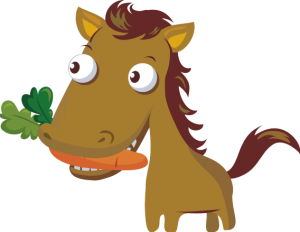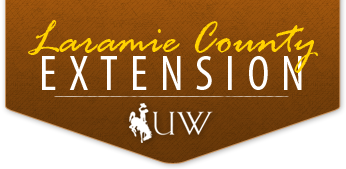Ever wonder what the difference is between a cultipacker, a para-plow and spike-tooth harrow? Here is a handy guide to farm equipment, courtesy of NNCS. For the true mechanic in all of us! Click here to get the guide.
UW Extension publication details poisonous plant symptoms, ways to reduce livestock production losses
Plants poisonous to livestock in Montana and Wyoming: Considerations for reducing production losses is now available as a PDF, HTML or ePub download at https://bit.ly/b-1359.
“Poisonous plants are a complex issue that can cause losses to production and income for ranches,” said Derek Scasta, University of Wyoming Extension range management specialist. “This is a comprehensive reference to keep on hand in the event you do come across affected livestock.”
This publication describes signs of poisoning and livestock affected, toxic doses and factors influencing toxicity and the habitats where these poisonous plants grow in Montana and Wyoming.
Environmental and management conditions leading to livestock poisoning and management considerations to prevent or minimize impacts are also described.
Laramie County’s horticulturist, Catherine Wissner, has teamed up with University of Wyoming’s Chris Hilgert to bring you a lecture on Vegetable Gardening. It is a comprehensive lecture on how to plant, tend, and harvest vegetables in the high plains of Wyoming. To view it, click here.
COVID-19 alters pesticide applicator certification, re-certification process
Wyoming private and commercial pesticide applicator certification and recertification has changed with the effects of COVID-19.
Private applicators have multiple options to certify (or re-recertify). They can attend an in-person meeting, complete the take-home workbook or compete the 50-question exam, said Jeff Edwards, University of Wyoming Extension pesticide safety education program coordinator.
He advised contacting local UW Extension offices for the availability of each option.
“Since COVID-19 response is driven by county-based health departments, your county UW Extension office may not offer all methods for certification,” he said.
County office telephone numbers can be found using this link bit.ly/UWcounty.
Commercial applicators seeking CEUs for recertification can gain 12 CEUs by participating in the Wyoming Weed Management Association online program Dec. 15-16. Pre-registration is required. Program and registration information can be found at bit.ly/2021-pesticide-certification.
Recertification is being offered a month early so those needing the required 24 CEUs will have adequate time to complete other online courses prior to the expiration of their licenses in January, said Edwards.
Additional CEUs approved by the Wyoming Department of Agriculture are available online and can be found through the UW Pesticide Safety Education Program (PSEP) website bit.ly/wy-pesticide-training or the Wyoming Department of Agriculture website bit.ly/WDA-pesticide-program.
Commercial applicators seeking a new license also have options for certification, said Edwards:
Copies of most manuals are available for free as electronic downloads (there are a couple of exceptions) from the UW PSEP website bit.ly/wy-pesticide-training. Read the CORE and the specific manuals for the categories for which you are seeking licensure, said Edwards.
Examinations are proctored via UW Extension county offices. Contact your local office to see if they are testing and make an appointment. County office contact information is at bit.ly/UWcounty. You can also contact the Wyoming Department of Agriculture and arrange to take an examination in Cheyenne. Call 307-777-7321.
Temporary license: COVID-19 exception – This license is only valid for the year in which it is issued, in this case 2021. Study the manuals as in option 1, said Edwards. Submit all paperwork to the Wyoming Department of Agriculture. Additional details to complete this licensing option are available at bit.ly/wyo-temp-applicators.
“There are no plans to offer an in-person program,” said Edwards. “We are, however, exploring the possibility of something online.”
For more information, contact Edwards (jedward4@uwyo.edu) or Lori Schafer (lschafe2@uwyo.edu) with the PSEP; or Wes Brown at the WDA (wes.brown@wyo,gov).
Landscaping for water-wise gardens information available from UW Extension
Landscaping: Water-Wise Wyoming Gardens is now available from the University of Wyoming Extension for download as a PDF, HTML or ePub format at http://bit.ly/Water-Wise-Wyo.
This bulletin provides seven steps to creating a water-wise garden.
“Wyoming is in a high desert, and water is not plentiful,” said Karen Panter, UW Extension horticulture specialist. “Using the seven steps along with some of the recommended plant materials in the bulletin, Wyoming citizens will be able to use water more efficiently in the landscape.”
Some areas of Wyoming receive less than 10 inches of precipitation each year, making landscape water issues necessities rather than options, explained Panter.
Wyoming Grape Guide available for free download
The Wyoming Grape Guide is now available for download as a PDF or ePub format at https://bit.ly/WY-grape-guide from the University of Wyoming Extension.
The guide provides basic information on grape cultivation specific to Wyoming. Topics include vineyard establishment, variety selection and harvest.
“This guide was created for all grape enthusiasts, the backyard gardeners to commercial producers, to increase their success with cultivating grapes in Wyoming,” said Jeremiah Vardiman, UW Extension agriculture and horticulture educator.
**In case you missed it…**
The slideshow that accompanies the Gardening for Success Raised Bed Gardening lecture is available in the “Available Lectures” tab on this page. The slide show is a useful aid to help you along!
UW Extension publication offers raspberry production guide for Wyoming
The University of Wyoming Extension’s Raspberry Production Guide for Wyoming is available for download as a PDF, HTML or ePub format at bit.ly/WyoRaspberryProduction. This guide covers how to grow raspberries in Wyoming, pest management in raspberries and helps growers select appropriate varieties for Wyoming.
“Having information about the pests specific to raspberries is important to prevent crop losses and also enables a grower to be proactive in managing them,” said Scott Schell, UW Extension entomology specialist. Chris Hilgert, UW Extension horticulture specialist, conducted a raspberry trial, funded by a Wyoming Department of Agriculture Specialty Crop grant, on 11 varieties of red and yellow raspberries for winter hardiness and yields. “Raspberries are reliable producers and can be found growing in gardens and specialty crop operations throughout Wyoming,” said Hilgert.
For more information, contact Catherine Wissner at cwissner@uwyo.edu
Laramie County Food Producers
Below is a PDF of the Laramie County Food Producers. These include vendors at the farmer’s markets in the area as well as others. Please support your local producers!

Feeding Your Horse via Zoom – video
Feeding Your Horse with Julie Daniels
Publications Available There are two publications available in PDF form, the Wyoming Noxious Weeds Handbook and Plants with Altitude: Regionally Native Plants for Wyoming Gardens. The links for the PDF’s are below; if anyone would like a copy of Plants with Altitude in book form, they may be ordered through the University.
Wyoming Noxious Weeds: https://wyoweed.org/wp-content/uploads/2018/09/Wyoming-Noxious-Weed-Handbook.pdf
Plants with Altitude: https://wyoextension.org/parkcounty/wp-content/uploads/2016/03/Plants-with-Altitude-Regionally-Native-Platns-for-Wyoming-Gardens.pdf
Useful Links

